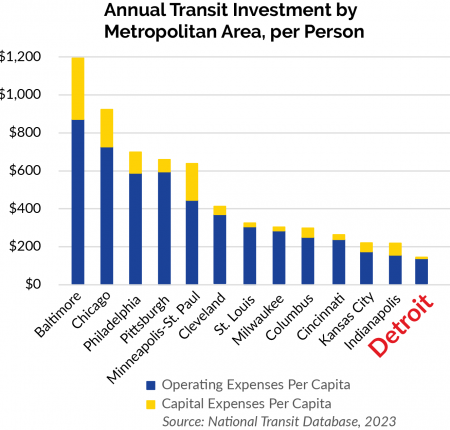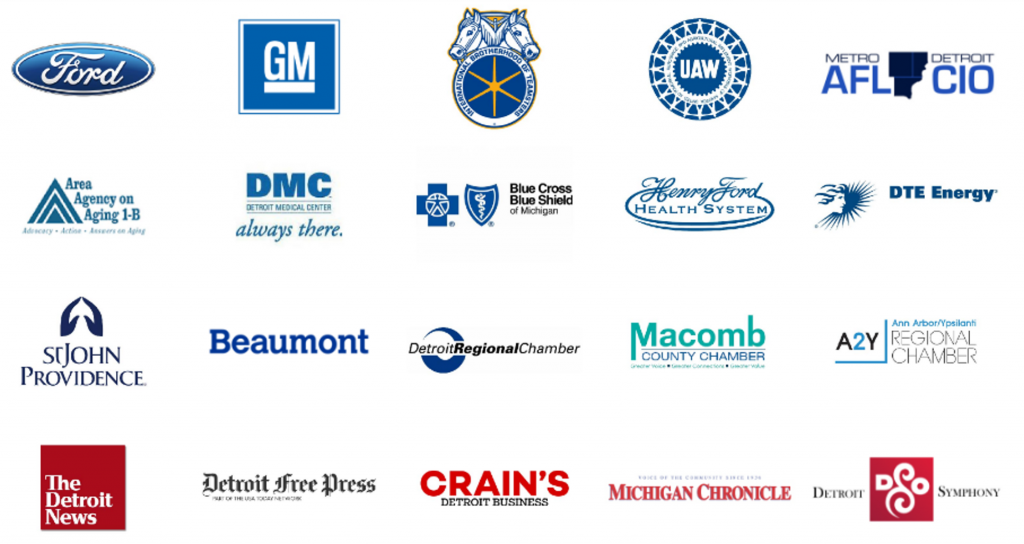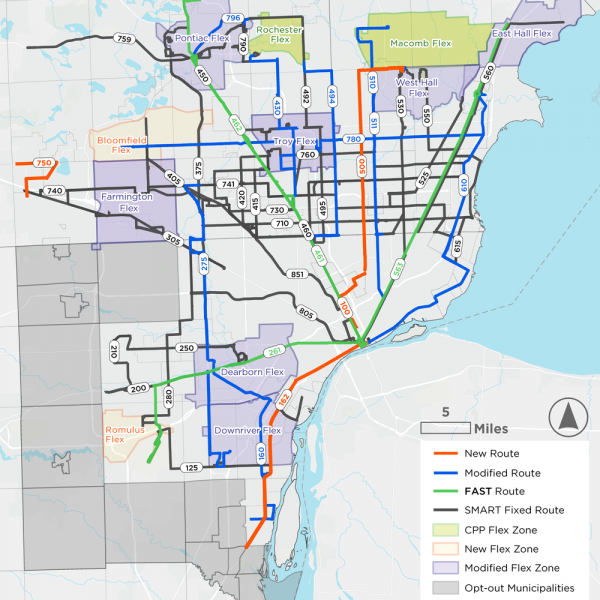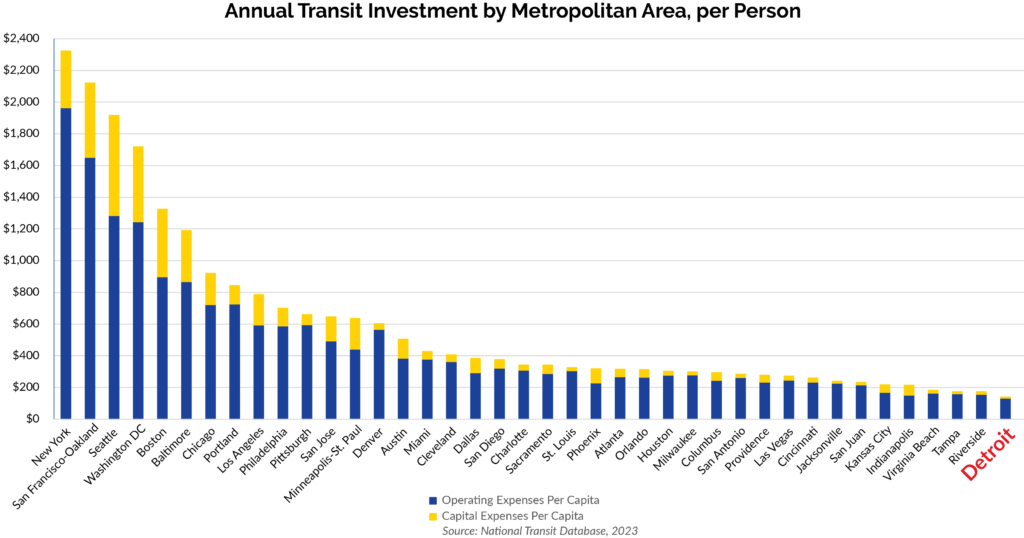For a public transit system to be effective, it needs sufficient dedicated funding for long-term operations. Nearly every major metropolitan area has a dedicated regional transit tax that supports its construction and ongoing operation of buses, trains, senior shuttles, rapid transit, streetcars, and more. Other than SMART’s modest millage, our region lacks such a funding source.
Investing just a third of what most metro regions invest, we get what we pay for: not much.
Even though Detroit is the 14th largest metro region in the nation:
The Detroit region spends less than any other metro region in the top 25, including Cleveland, Atlanta, St. Louis, Las Vegas, and Phoenix!
Even comparing just to other Midwest or medium-sized metro regions, we still invest the least.
2016 Regional Transit Plan
The Regional Transit Authority analyzed the gaps and limits of southeast Michigan’s transit and developed a plan to provide much more of the transit our region needs. The Regional Transit Master Plan was approved in 2016 by the RTA Board, with support from all four counties and the City of Detroit.
This plan was broadly supported and endorsed by over 250 leading businesses, organizations, and civic leaders.
While the 2016 vote on whether to invest 1.2 mils over the next 20 years to implement that plan was narrowly defeated, preventing the major investment we need, several lower-cost components of the plan have been implemented:
- Seamless express bus service on busy corridors (FAST bus)
- Coordinated fare structure (DART)
- Express bus service linking Detroit and Ann Arbor, along with Downtown Detroit and DTW


Recent Successes in Regional Transit
In the years since, individual cities and counties have had major transit wins, such as:
- Macomb passes SMART Millage (2018)
- Macomb & Wayne SMART Millage Renewals (2022)
- Oakland Countywide Transit (2022)
- Ann Arbor & Ypsilanti nearly tripling TheRide’s Millage (2022)
SMART Expansion: SMARTer Mobility
Currently, SMART (Suburban Mobility Authority for Regional Transportation) is undergoing a system expansion under their SMARTer Mobility project. This plan would majorly reshape SMART’s system, with major gains such as new routes, increased frequency, and more weekend service.
However, in comparison to the DDOT Reimagined Plan and the RTA’s own 2024 Regional Transit Master Plan Update, SMARTer Mobility doesn’t account for any scenarios where funding increases – showing that we get what we plan for.
TRU has called on SMART to provide a vision for what SMART could be if the Detroit region didn’t spend the least on transit out of any major US city. For us to achieve the vision of a truly world-class transit system, we need to ask our leaders to give us a visionary plan.

What Can You Do?
TRU’s asking that we double our investment in transit as a region – which would put us on par with cities like Columbus, St. Louis, and Milwaukee.
Increasing Regional Funding: Tell the RTA board and your county executive that you support dedicated public investment in improved and expanded public transit.
SMARTer Mobility: Tell SMART’s board that we need more buses, more places, more often. We need to propose changes that get people excited and show what can be done if we invest more in transit.
